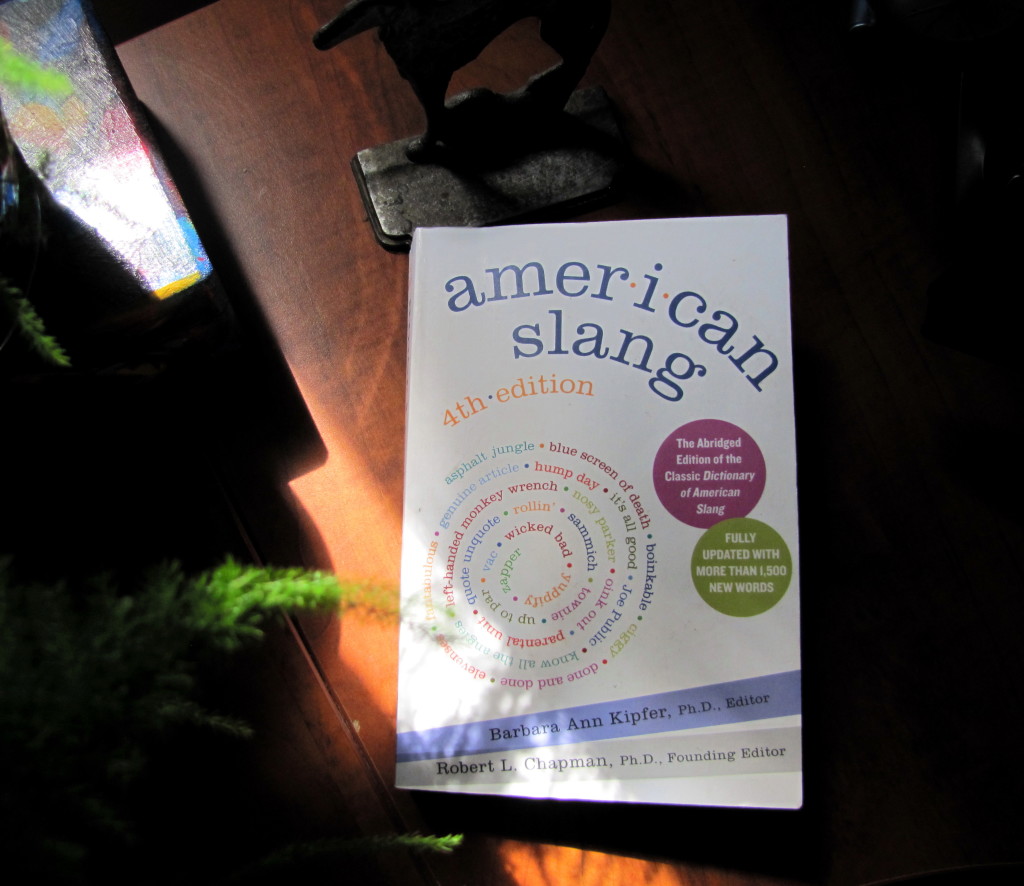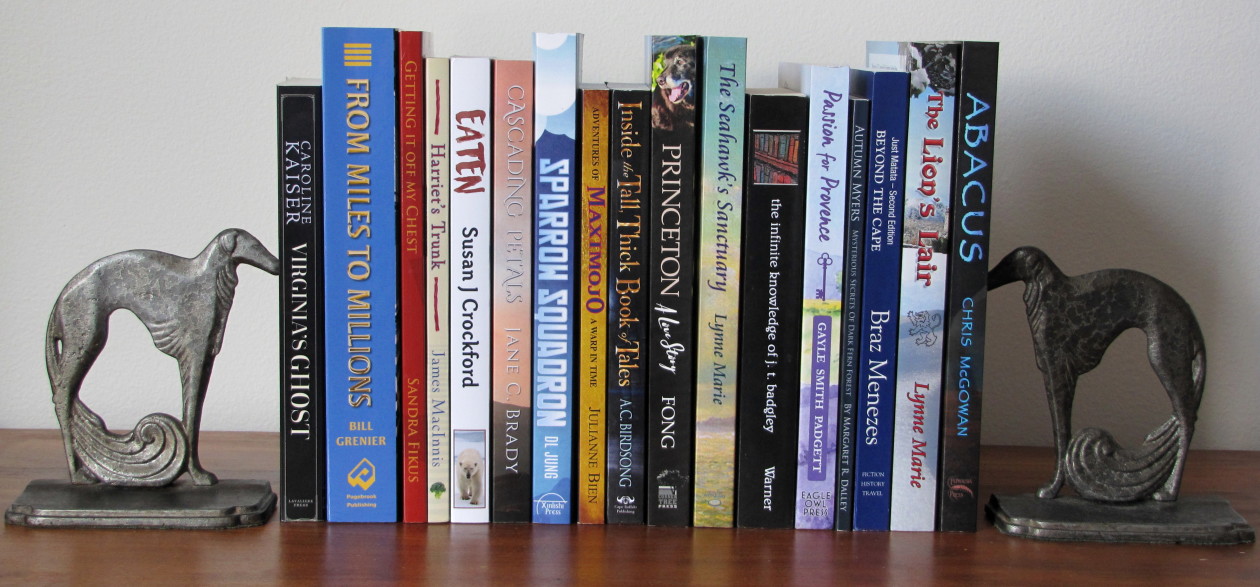
You’re reading a novel set during the Middle Ages, and a conflict breaks out between defenders of a castle and enemy forces. One of the characters describes those who are energetically engaging in battle as “going at it hammer and tongs.” And when a defender forcefully ejects an enemy soldier from inside the castle, he’s jubilant about giving the attacker “the bum’s rush,” adding that he’s “happy as a pig in slop.” Are you cringing yet? The problem here is that the slang is all wrong for the period: “going at it hammer and tongs” originated in 1833, “the bum’s rush” dates from the 1920s, and “happy as a pig in slop” is from the 1970s. Oops. Clearly, neither the author of the book nor its editor had a copy of American Slang, (fourth edition, 2008) on hand to prevent them from making such embarrassing bloopers.
American Slang, edited by Barbara Ann Kipfer and Robert L. Chapman, is an indispensable reference book for anyone who writes or edits historical fiction. In addition to defining slang terms, the entries indicate how such terms are used in sentences, note examples of synonymous slang, and provide notes on etymology if this is known. But the book contains other features that make it more useful than other slang dictionaries. The addition of dating labels really sets this dictionary apart from many I looked at; when known, the era or sometimes even the exact year when a slang term originated is noted, and I found that very few entries had no indication of date. As well, the social group or milieu from which the term came is often identified–“Underworld,” “Jazz musicians,” “Teenagers,” to name a few–giving writers and editors additional clues about the appropriate context for using the slang. The dictionary also contains “impact symbols” that designate slang that is considered either completely taboo or vulgar, so you’ll know to avoid using these in most situations.
Apart from being an essential reference, American Slang is a treat for anyone who loves words. I find myself dipping into it periodically, simply because it’s hard to resist the chance to learn about some of the most vigorous and colourful words and phrases in the English language. As the blurb on the back says, American Slang is “the most buzzworthy, banging collection of colloquial American English”–and if you’re not quite sure what that means, you definitely need this book!

 Follow
Follow